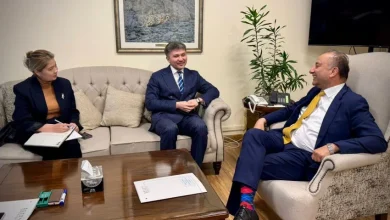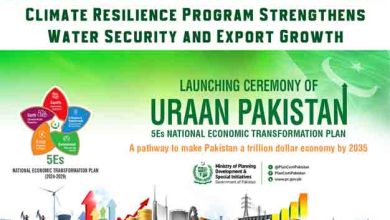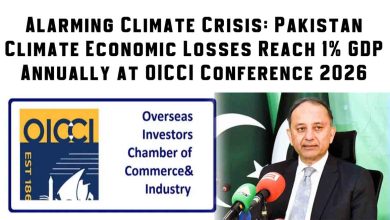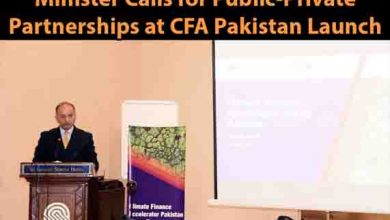Centre allows Sindh to earn $200m through carbon credits
ISLAMABAD: In the absence of an approved policy, the federal government has allowed Sindh to earn $200-220 million (about Rs57-63 billion) of carbon credits over the next two decades for its efforts to expand mangrove forests under Pakistan’s commitments for unconditional contribution to a global drive for reducing greenhouse gas emissions.
In 2021, the Ministry of Climate Change submitted the nationally determined contributions (NDC) to the United Nations Framework Convention on Climate Change. The ministry pledged that 15pc of the carbon credits generated — i.e. reducing around 240 tonnes of carbon dioxide equivalent — in the country will be Pakistan’s unconditional contribution towards the NDCs.
Major sectors included in this reduction are energy, industry, forests, agriculture and transport.
NDCs are at the heart of the Paris Agreement and the achievement of its long-term goals. They embody efforts by each country to reduce national emissions and adapt to the impacts of climate change.
Besides national-level commitments by countries, the Paris Agreement for a reduction in greenhouse gas emissions allows private entities to generate carbon credits and trade them with international entities on voluntary carbon markets.
These markets allow carbon emitters to offset their unavoidable emissions by purchasing carbon credits emitted by projects targeted at removing or reducing greenhouse gas from the atmosphere.
However, the carbon credits traded on these voluntary markets cannot be counted against the NDC commitments of the country. Therefore, the private entities need an undertaking from the national governments that they will make “corresponding adjustments” in their NDC targets by excluding those private carbon credits.
For this, there is a need for a carbon market policy for regulating the trading of carbon credits so that Pakistan’s commitment under the NDCs does not get compromised. However, the country does not have such a policy at present and would be unable to have one over the next two years.
The climate ministry has reported to the federal cabinet that it was preparing a carbon market policy, a voluntary carbon market, and a net-zero framework with World Bank’s technical help that may take about two years, but an interim framework was currently being expedited.
On the other hand, the Sindh Forest Department is already implementing two Indus Delta mangrove projects — Delta Blue Carbon 1 and 2 — in collaboration with a private entity selected by the department.
Under the first project, started in 2015, about 3.1 tonnes of CO2 equivalent have been sequestered and traded in international voluntary carbon markets, generating $14.7m in revenue for Sindh.
The agreement for the second project was executed in March 2020, and its planting operations began this year.
With the support and consent of the provincial government, the Sindh Forest Department sought a no-objection certificate (NOC) from the federal government through the climate ministry to continue selling carbon credits in international voluntary carbon markets until 2042.
The NOC would mean that those carbon credits will not be counted by Pakistan against its NDC commitment till 2043.
The climate ministry tried to convince the Sindh government to reduce the concession period until 2033 to help the national commitments be fully honoured.
However, the Sindh government and the provincial forest department did not agree and contended that both the Indus Delta mangrove projects were initiated before the national commitments made under nationally determined contributions in 2021.
Secondly, the contribution of the mangrove projects in percentage terms would be less than one per cent of the pledged 240 tonnes of CO2 equivalent under the commitments, hence denying corresponding adjustments for the carbon credits of both projects will not have any substantial impact.
Third, these projects are estimated to generate about $200-220m by 2043 with the additional benefits of creating green jobs. Some 21,000 jobs have reportedly been created so far besides investment towards afforestation, restoration and re-vegetation of the mangroves.
The Sindh Forest Department has argued that the annual revenue generated from the mangrove projects will help in achieving biodiversity, climate and community benefits in the coastal areas of Sindh.
The provincial government has also pledged to undertake all possible measures to reduce its share of greenhouse gas emissions based on population, i.e. 55 tonnes of CO2 equivalent, by 2035.
Published in Dawn, May 29th, 2023







